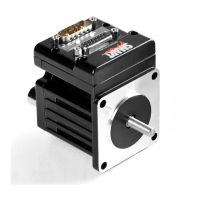Moog Animatics SmartMotor™ Developer's Guide,Rev. L
Page 706 of 909
SLEEP
Ignore Incoming Commands on Communications Port 0
APPLICATION: Communications control
DESCRIPTION: Prevents motor from executing channel 0 commands
EXECUTION: Immediate
CONDITIONAL TO: N/A
LIMITATIONS: N/A
READ/REPORT: N/A
WRITE: N/A
LANGUAGE ACCESS: N/A
UNITS: N/A
RANGE OF VALUES: N/A
TYPICAL VALUES: N/A
DEFAULT VALUE: WAKE state
FIRMWARE VERSION: 5.x and later
COMBITRONIC: N/A
DETAILED DESCRIPTION:
The SLEEP command is used to put a SmartMotor™ into sleep mode with respect to channel 0
serial commands. While in sleep mode, a SmartMotor will continue to echo (if in ECHO mode)
all characters received over the network, but it will ignore all commands other than a WAKE
command.
The most common use of the SLEEP command is to keep daisy-chained SmartMotors from
responding to commands in a program that is being downloaded to another SmartMotor in the
same chain.
If a program is running when a SmartMotor receives the SLEEP command, that program will
continue to run. Messages originating from within the running program of a sleeping
SmartMotor will be transmitted unless the motor is also in SILENT mode. For details, see
SILENT on page 696.
SLEEP may be issued from the terminal or within a user program. SLEEP mode is terminated
by the WAKE command.
Part 2: Commands: SLEEP

